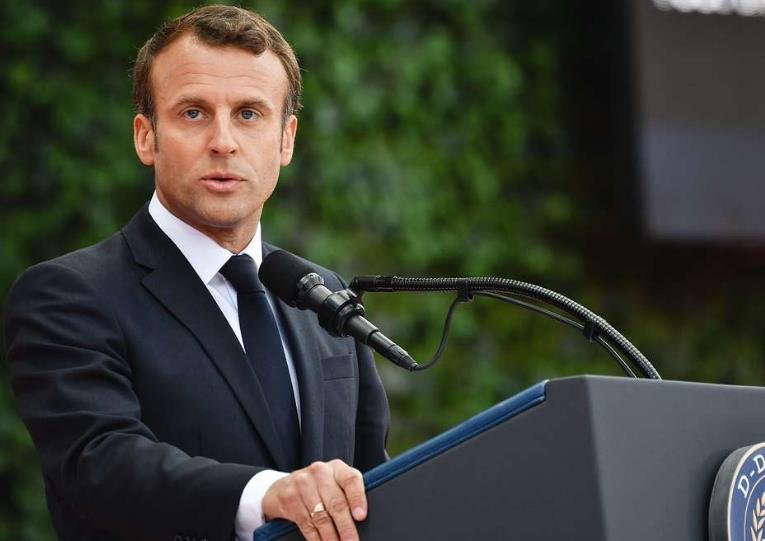French President Emmanuel Macron is set to attend the France-Israel football match this Thursday, a move aimed at promoting unity and countering recent anti-Semitic incidents. The match, held under heightened security, marks a significant gesture of solidarity following violent clashes in Amsterdam last week.
Macron’s Symbolic Presence Sends a Strong Message
President Macron’s decision to be present at the game is a clear statement against hate and violence. His office emphasized that his attendance is meant to demonstrate “fraternity and solidarity after the intolerable acts of anti-Semitism that followed the match in Amsterdam this week.”
The recent events in Amsterdam, where a game between Maccabi Tel Aviv and Ajax led to violent confrontations, left around two dozen people injured. These clashes have intensified concerns over the safety of Israeli and Jewish communities in Europe.
Macron’s presence is not just about football; it’s about standing up against hatred. It’s a move that resonates deeply in a time when sports events are increasingly becoming flashpoints for political and social tensions.

Massive Security Measures Deployed for the Match
Paris authorities are leaving no stone unturned to ensure the safety of all attendees. Police Chief Laurent Nunez described the match as high risk, announcing that 4,000 gendarmes will be deployed around the Stade de France, public transport, and throughout the city.
“We are taking every possible precaution to ensure the safety of all participants and spectators,” Nunez stated. The extensive security measures include:
- Increased Police Presence: Thousands of police officers will patrol the stadium and surrounding areas.
- Advanced Surveillance Systems: Enhanced CCTV coverage and monitoring to detect any suspicious activities.
- Controlled Access Points: Strict entry protocols to prevent unauthorized individuals from entering the venue.
- Emergency Response Teams: Ready to act swiftly in case of any incidents.
These measures reflect the seriousness with which French authorities are treating the potential threats, aiming to prevent any disruptions or violence during the match.
Pro-Israel Rally Plans Stir Controversy
Ahead of the match, the right-wing Jewish movement Betar is organizing a rally in Paris to protest against anti-Semitism. Yigal Brand, CEO of World Betar, expressed outrage over the events in Amsterdam and called on members and supporters to gather in Paris on Wednesday and Thursday.
“We are proud Zionists and have nothing to apologize for,” Brand declared. The rally is part of a broader effort to show support for Israel and condemn hate-driven actions.
Additionally, Betar and the French Jewish student movement MEJF are set to host Israel’s far-right Finance Minister Bezalel Smotrich in Paris on Wednesday. The event, titled “Israel Is Forever,” is a gala supporting Israel but has faced criticism from various associations, unions, and leftist parties for its far-right affiliations.
- Date: Wednesday and Thursday before the match
- Location: Paris, near Stade de France
- Participants: Betar members, MEJF, and international supporters
- Purpose: To show solidarity with Israel and protest against anti-Semitism
The presence of far-right figures at the gala has sparked debates about the line between supporting Israel and endorsing extremist views. Many leftist groups have denounced the event, emphasizing the need to combat anti-Semitism without fueling further divisions.
International Reactions and Implications
The planned attendance of Macron and the extensive security measures highlight the broader international implications of recent events. Leaders from various countries have condemned the anti-Semitic violence in Amsterdam, urging calm and unity.
Israeli authorities have advised their fans to avoid the match, reflecting the heightened tensions and the real fear of potential attacks. Despite these warnings, the French government remains resolute in hosting the event, aiming to promote peace and solidarity through sports.
Table: Security Deployment for France-Israel Match
| Aspect | Measures Implemented |
|---|---|
| Police Presence | 4,000 gendarmes across Paris and Stade de France |
| Surveillance | Enhanced CCTV and monitoring systems |
| Access Control | Strict entry protocols and checkpoints |
| Emergency Services | Ready-response teams on standby |
| Public Coordination | Collaboration with local communities |
These coordinated efforts underscore the commitment to making the event safe for everyone involved. The international community is watching closely, hoping that the match can proceed without further incidents.
Voices from the Community
The announcement of Macron’s attendance has been met with mixed reactions. Many see it as a necessary show of support, while others worry it might escalate tensions further.
Local Jewish communities in Paris have expressed both relief and concern. Relief that their leaders are being supported, yet apprehensive about the potential for violence despite the heavy security presence.
Community Perspectives:
- Supporters: View Macron’s presence as a powerful gesture against hate.
- Critics: Fear that increased visibility might attract more targeted threats.
Overall, the community’s sentiment is one of cautious optimism. There is hope that the event will foster a sense of unity and resilience against hate, but underlying fears remain due to the recent violent incidents.
Looking Ahead: The Future of Sports and Security
The intertwining of sports and politics continues to pose challenges for organizers and authorities. The France-Israel match is a testament to how international events can become arenas for broader societal issues.
Going forward, it’s essential to find a balance between celebrating sports and ensuring the safety and inclusivity of all participants. The lessons learned from recent events in Amsterdam and Paris will likely influence how future matches are secured and managed.
As the world grapples with rising tensions, the role of leaders like Macron in promoting peace and solidarity becomes increasingly vital. Their actions set precedents for how societies respond to hate and violence, both on and off the field.
